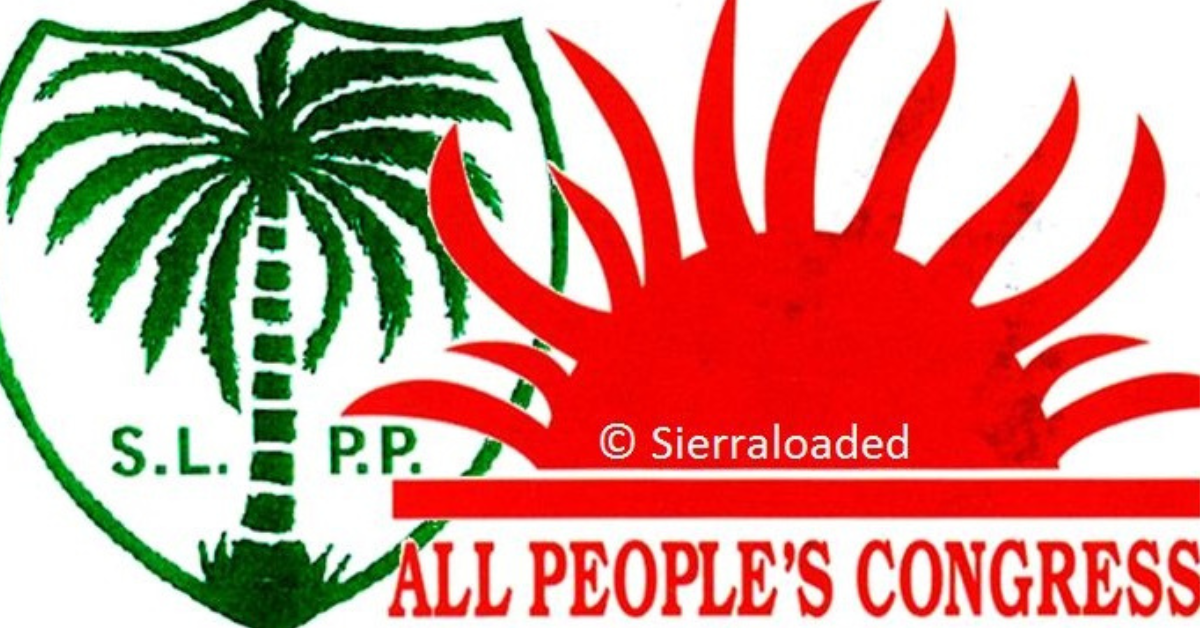Sierra Leone’s political landscape continues to be marred by tension and rivalry, with the main opposition All People’s Congress (APC) and the ruling Sierra Leone People’s Party (SLPP) engaging in what some describe as a political standoff with far-reaching implications. Edwin Macauley, a political scientist at the University of Vancouver, has characterized the ongoing discord between the two parties as more than just a rivalry, calling it a “political infections fever” that permeates both words and actions, leading to a vicious cycle of contention.
Macauley notes that despite the APC’s persistent challenges against the SLPP, the latter has remained largely satisfied with its constitutional standing, often brushing aside the opposition’s claims. The APC, however, has frequently criticized the judiciary, alleging bias and claiming that the system is rigged against them due to their past rule-breaking. These allegations have led to significant tension, particularly during the period when the APC pushed for re-election, only to have their demands dismissed by the very constitution they sought to challenge.
One notable incident highlighted by Macauley is the reversal of the Tripartite Committee’s decision, which had initially appeared to favor the APC. This U-turn has become a point of study, illustrating the complex and often unpredictable nature of Sierra Leone’s political dynamics. Macauley argues that in politics, it is crucial not to overlook the strategies of one’s rivals, as they often reflect a deeper focus and intent. He suggests that opposition parties like the APC can only hope to gain traction if they adopt a comprehensive approach, addressing every issue and event with a positive counter-strategy.
The political scientist further observes that the APC seems increasingly desperate for power, while the SLPP appears more comfortable, focusing on publicizing its progress and achievements. He warns that the dynamics between the two parties are more complex than they appear, with underlying factors that could significantly influence the country’s political future. As Sierra Leoneans at home and abroad look ahead to the next electoral cycle, the ongoing friction between the APC and SLPP continues to shape the nation’s political discourse, raising questions about the prospects for stability and unity in the years to come.












Mr Writer you could profer solutions to salone,s political problems so that it will degenerate into chaos and the masses will have to be the ones to pay the price
The SLPP party members know that Ma’ada Bio did not win the June 24 th, 2023 elections but Ma’ada Bio keeps on deceiving his supporters that he is going to rule for ten years, which is the arrangements with the APC party and according to the Constitution of Sierra Leone. This is a false belief. The Constitution of Sierra Leone never States any limit to the number of years a party should rule and quite The SLPP junta government is believes that they are going to complete the ten years whether they do good to the electorates or not. The SLPP party also misinform their supporters by telling them that The Electoral Commissioner has all the powers to do whatever he likes, he is above questioning. That was why Ma’ada Bio and Mohamed Konneh Openly and shamelessly stole the elections. Mohamed Konneh announced numbers that Ma’ada Bio told him to announce. Mohamed Konneh is not matured and does not have any Integrity and Self Esteem.
Ma’ada Bio is a Notorious Lair, and the Alie Baba of Africa. Ma’ada Bio has never done any Good to the people of Sierra Leone and indeed has no good intentions for the people of Sierra Leone. Ma’ada Bio is looting our resources and taking them to other countries.
The biggest mistake the SLPP party has made is the Selection of Ma’ada Bio as flagbearer.
The executive members of the APC party are also preparing to Kill the APC party for its founders like what Bio has done to the SLPP party. Ma’ada Bio has destroyed himself and the SLPP party.
The SLPP party has to sit down and critically select a Gentle Man or woman..
They must forgot about the TOTAL destruction of the APC party which was the main reason why they gave Ma’ada Bio the Symbol as Flagbearer.
The best thing Ernest Bai Koroma did for the APC was to give the APC party a Gentle Man. Samura Kamara is a very Honest man, hardworking, has a lot of initiatives and developmental Ideas. Samura Kamara is not a THIEF, not a Liar and not a killer of innocent people.
V SAMURA KAMARA would be one of the best president Sierra Leone would get. He is religious and very patient. The Almighty Allah has given us Samura Kamara to redeem this country from Bondage. People will ever remain to Thank God for what he is ready to do for the people of Sierra Leone.
You are a madman that should be discountananced. Full stop.